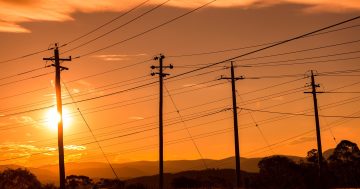
Massive increases in the cost of electricity and gas for Canberrans to come into effect next month are likely to push thousands of households that have just been coping into financial distress according to the ACT Council of Social Service.
ActewAGL price increases from July 1 will mean that the average Canberra household using both electricity and gas will have to fork out an extra $580 a year or $11.15 per week.
This comes on top of average rate hikes of seven per cent announced in Tuesday’s 2017-18 ACT Budget.
The increases are going to drive more people into financial distress and affect their ability to keep food on the table and to participate socially in their community, according to ACT Council of Social Service Director, Susan Helyar.
“We know that this will put the 28,000 households that are already in extreme financial distress further behind in meeting the gap between their income and their cost of living,” Ms Helyar said.
She said it would also be enough to push households which have just been coping into hardship, estimating that it would increase the number of Canberrans in financial distress to 40,000.
Ms Helyar said that people in this situation will have no choice but to cut back on the basics such as food, health care, keeping a car on the road and providing activities outside of school for their children.
ACT electricity prices will increase by 18.95 per cent from July 1, meaning an increase of $6.40 per week or $333 a year for the typical Canberra household.
ACT natural gas prices will increase by 17.3 per cent from July 1, meaning an increase of $4.75 per week or $247 a year for average Canberra homes.
ActewAGL CEO Michael Costello has acknowledged that the gas and electricity price rises are “unprecedented” and said they are the result of 10 years of uncertainty in national energy policy.
Mr Costello said that most of the 18.95 per cent increase in electricity prices has been caused by the doubling of wholesale price electricity prices over the past year.
“Like electricity, the wholesale gas price has approximately doubled in the past 12 months; in this case because Australia now exports about 10-times the amount of gas we use domestically, cutting local supply,” Mr Costello said.
“Again, this is the result of national policy not taking account of the impact on the local market of the massive gas export licences granted.”
Mr Costello said that ActewAGL understands the price rises may cause significant hardship and for this reason they have started a quarter of a million dollar Energy Support Fund to work with customers to help keep them “connected this winter”.
“Our main message to the community is if you’re struggling to make ends meet, don’t go without energy, please contact us as there are things we can do to help,” Mr Costello said.
“We’ve met with community groups that provide frontline services and are acting on their helpful advice and the ideas we discussed.
“We’ll be working with these groups to identify as early as possible people who may be struggling and to direct support where it’s needed most.”
The Energy Support Fund will be rolled out from 1 July, with initiatives to include:
- energy vouchers for distribution through community groups who provide emergency relief services
- a Solar Grants Program for eligible community organisations, helping to cut the energy bills of groups that provide vital community support
- a dedicated Bill Help Hotline, providing ActewAGL customers with support options and information on rebates and concessions
- strengthening the Staying Connected program and providing eligible customers with personalised support to help them get back on track with their bills
Ms Helya has welcomed the establishment of the fund and the proactive measures to keep people connected to energy.
How are you going to cope with energy price hikes? Will you have to miss out on any essentials? Do you think our standard of living is going backwards given that costs keep going up while wages have stayed the same?
















